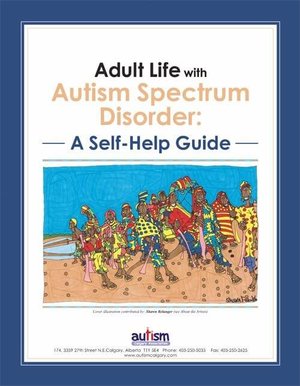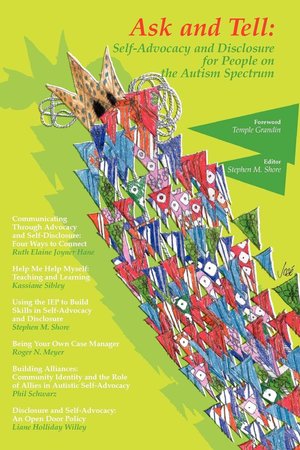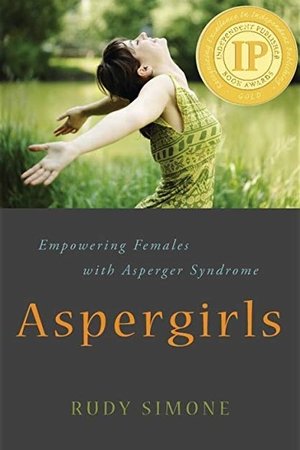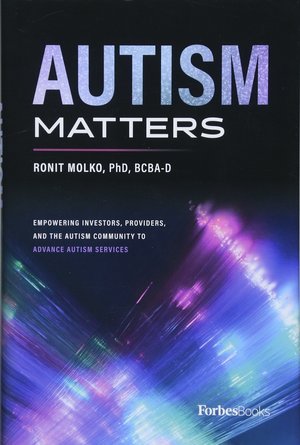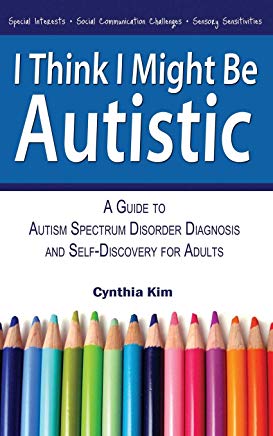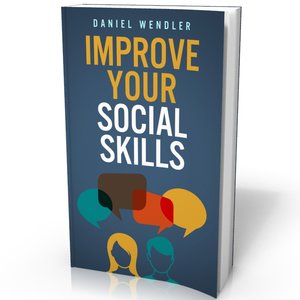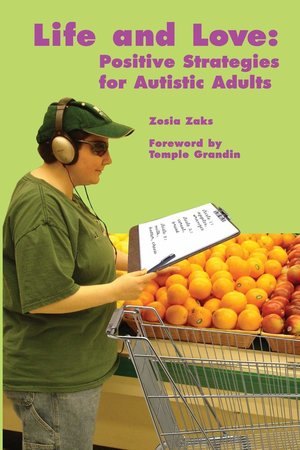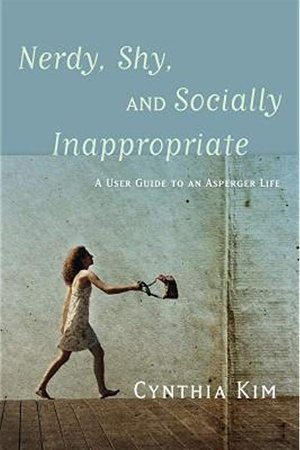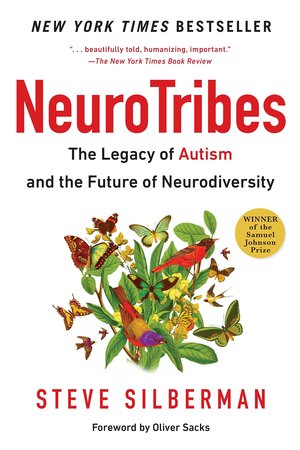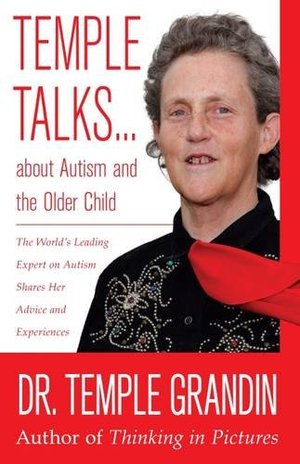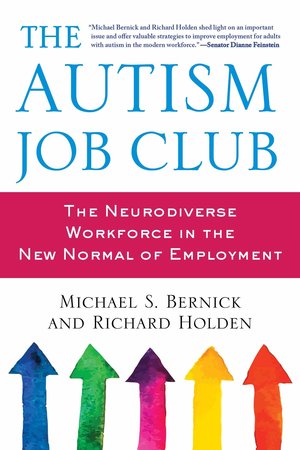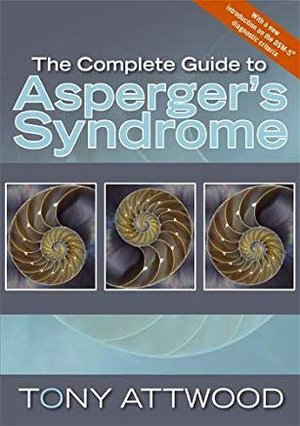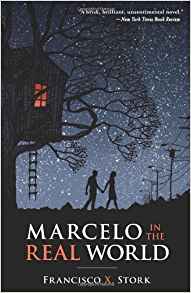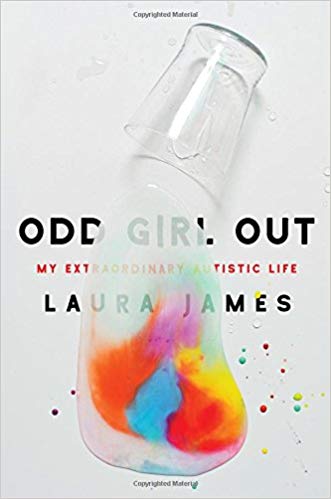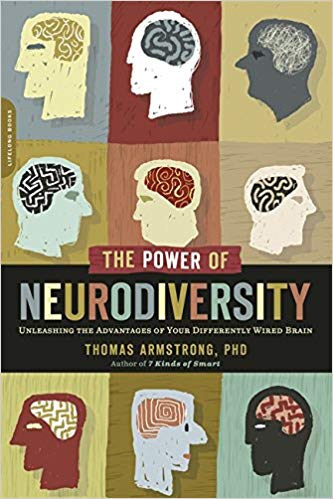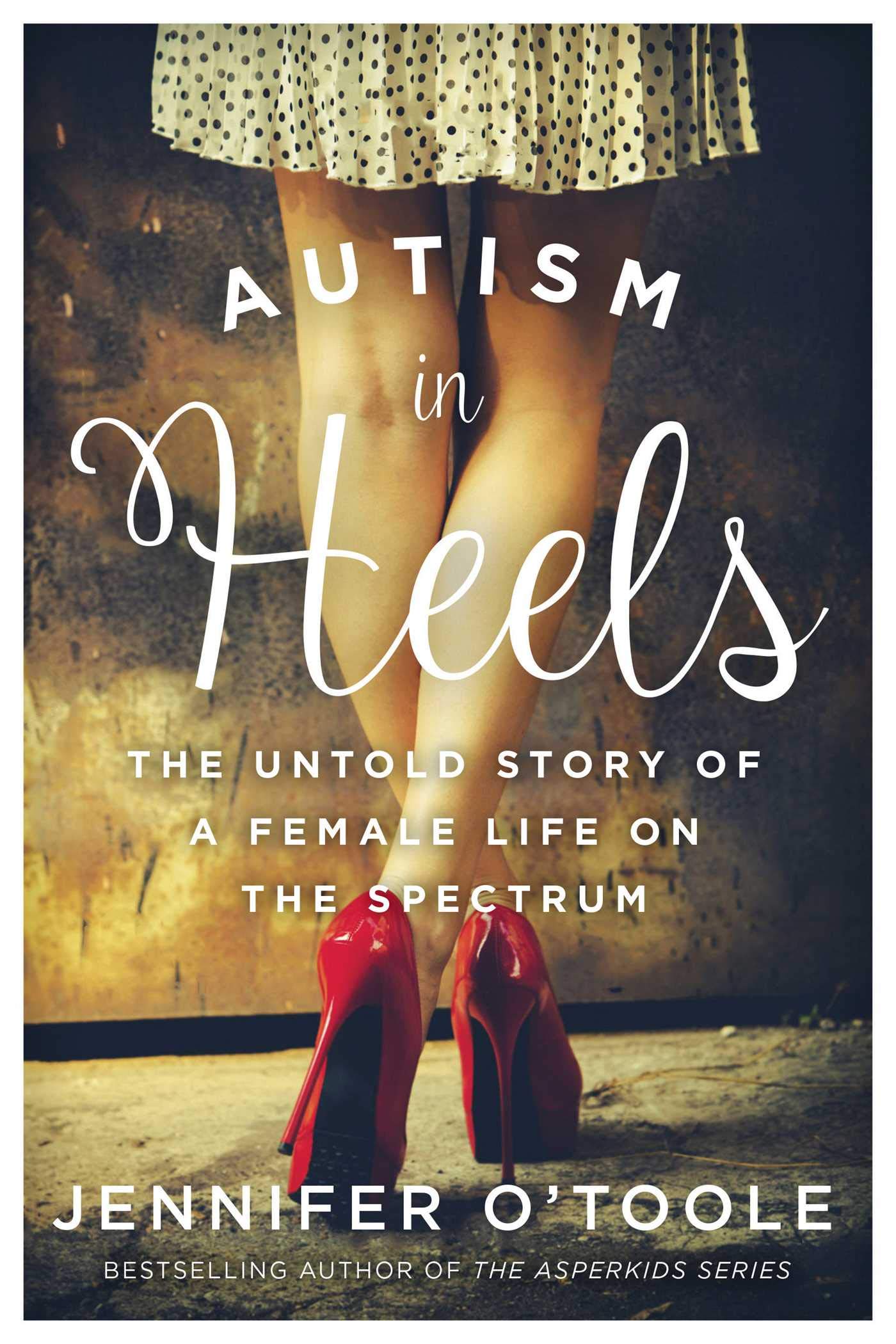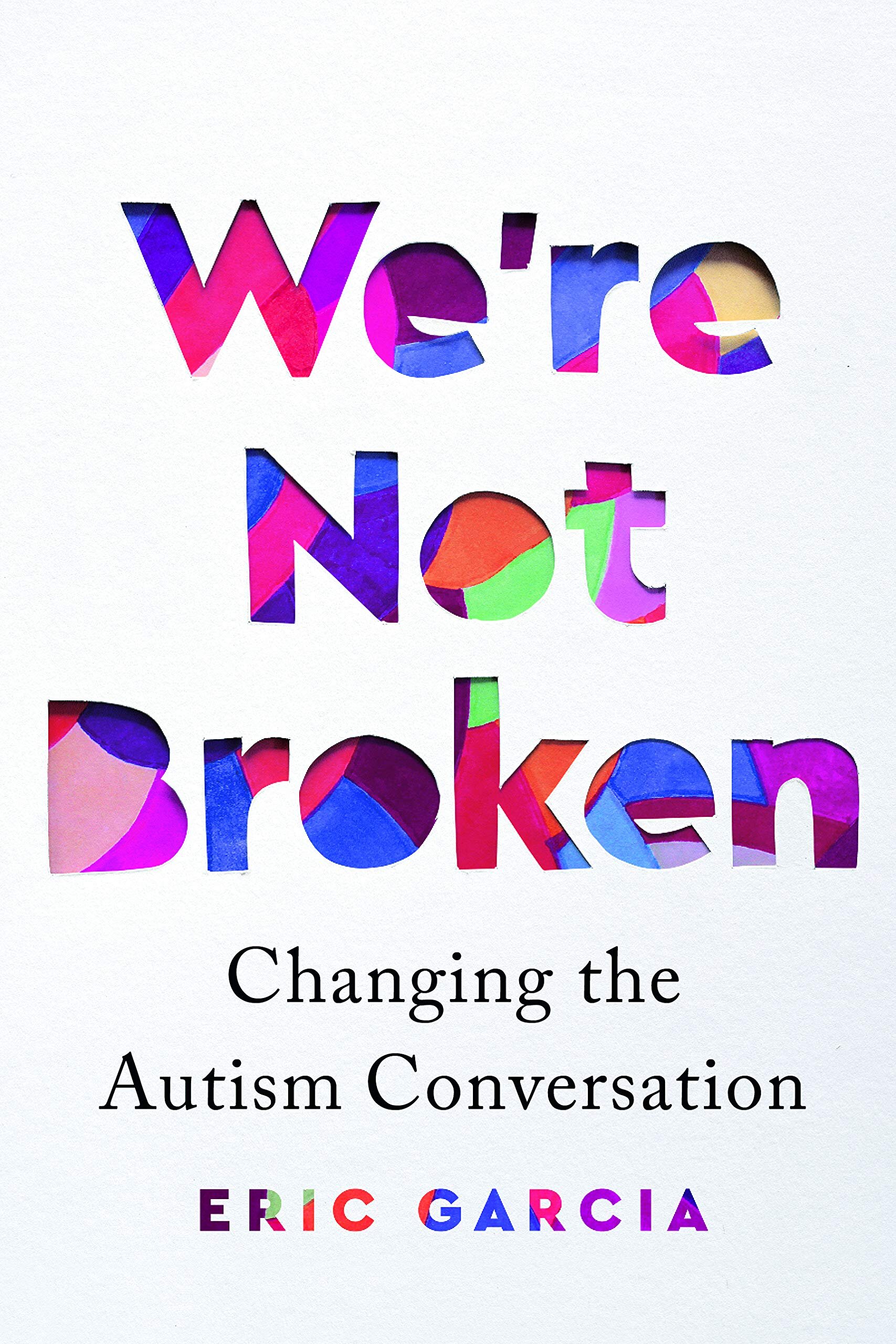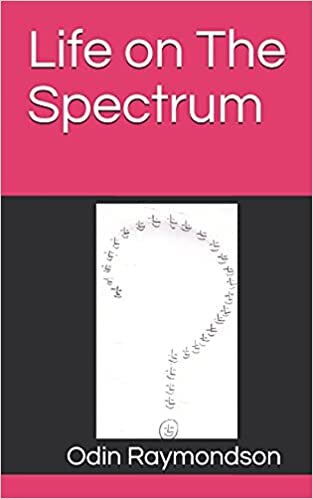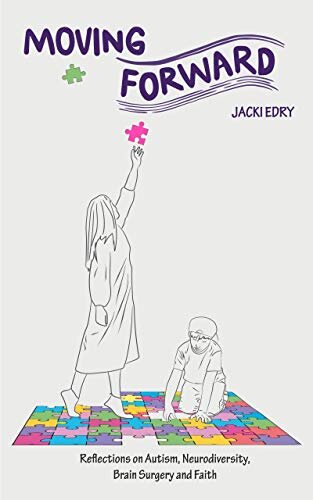Here you will find a list of books regarding autism, neurodiversity, employment, self-help, and guides.
50 Must-Read Books About Neurodiversity
by Jaime Herndon | mother of autistic child, MFA in nonfiction writing, writer, editor, and book reviewer (06-07-18)
Life on The Spectrum: Help for young Neurodiverse to successfully navigate the Neurotypical World
Life on the Spectrum is a collection of the lessons learned and wisdom won by Odin. over the course of living a life on the Autism spectrum. In Life on the Spectrum you will learn to see Neurodiversity as a deeply empowering way to be.Pragmatic and realistic, Life on the Spectrum challenges the stereotype that to be on the Autism spectrum is to live a life that is anything other than full of social success, love and a career. Instead of taking the characteristics that define Neurodiversity as negatives that permanently handicap us, he turns them on their heads and shows them to be sources of deep strength and power.
Moving Forward: Reflections on Autism, Neurodiversity, Brain Surgery and Faith
by Jacki Edry
Moving Forward is a journey between the worlds of autism, neurodiversity, brain surgery recovery, and faith. It provides a rare glimpse into how sensory and neurological processing affect functioning and thought, through the eyes of a professional, parent, and woman who has experienced them firsthand. This book presents an informative, emotional, and empowering account of the challenges and struggles on the road to recovery ‒ as well as the search for understanding, meaning, and faith. It enables you to step into the shoes of someone who has endured the types of sensory irregularities common in people with neurodiversity; including autism, ADHD, dyslexia, Irlen Syndrome, Auditory Processing Disorder, and more, and to gain understanding as to how to cope with these challenges and to compensate for them. Moving forward will enlighten parents, professionals, and family members to better understand and assist the neurodiverse people whom they work with and love.
We're Not Broken: Changing the Autism Conversation
by Eric Garcia
“This book is a message from autistic people to their parents, friends, teachers, coworkers and doctors showing what life is like on the spectrum. It’s also my love letter to autistic people. For too long, we have been forced to navigate a world where all the road signs are written in another language.”
Autism in Heels: The Untold Story of a Female Life on the Spectrum
The face of autism is changing. And more often than we realize, that face is wearing lipstick.
Autism in Heels, an intimate memoir, reveals the woman inside one of autism’s most prominent figures, Jennifer O'Toole. At the age of thirty-five, Jennifer was diagnosed with Asperger's syndrome, and for the first time in her life, things made sense. Now, Jennifer exposes the constant struggle between carefully crafted persona and authentic existence, editing the autism script with wit, candor, passion, and power. Her journey is one of reverse-self-discovery not only as an Aspie but--more importantly--as a thoroughly modern woman.
Beyond being a memoir, Autism in Heels is a love letter to all women. It’s a conversation starter. A game changer. And a firsthand account of what it is to walk in Jennifer's shoes (especially those iconic red stilettos).
Whether it's bad perms or body image, sexuality or self-esteem, Jennifer's is as much a human journey as one on the spectrum. Because autism "looks a bit different in pink," most girls and women who fit the profile are not identified, facing years of avoidable anxiety, eating disorders, volatile relationships, self-harm, and stunted independence. Jennifer has been there, too. Autism in Heels takes that message to the mainstream.
From her own struggles and self-discovery, she has built an empire of empowerment, inspiring women the world over to realize they aren't mistakes. They are misunderstood miracles.
“A New York Times bestseller. Winner of the 2015 Samuel Johnson Prize for non-fiction. A groundbreaking book that upends conventional thinking about autism and suggests a broader model for acceptance, understanding, and full participation in society for people who think differently.”
Odd Girl Out: My Extraordinary Autistic Life
by Laura James
From childhood, Laura James knew she was different. She struggled to cope in a world that often made no sense to her, as though her brain had its own operating system. It wasn't until she reached her forties that she found out why: Suddenly and surprisingly, she was diagnosed with autism.
With a touching and searing honesty, Laura challenges everything we think we know about what it means to be autistic. Married with four children and a successful journalist, Laura examines the ways in which autism has shaped her career, her approach to motherhood, and her closest relationships. Laura's upbeat, witty writing offers new insight into the day-to-day struggles of living with autism, as her extreme attention to sensory detail--a common aspect of her autism--is fascinating to observe through her eyes.
As Laura grapples with defining her own identity, she also looks at the unique benefits neurodiversity can bring. Lyrical and lush, Odd Girl Out shows how being different doesn't mean being less, and proves that it is never too late for any of us to find our rightful place in the world.
Neurodiversity at Work: Drive Innovation, Performance and Productivity with a Neurodiverse Workforce
by Amanda Kirby & Theo Smith
An organization's employees are its biggest competitive advantage. Performance gains can be achieved through cost saving, process improvement or technology adoption, but the biggest difference is made by people. This means that recruiting, engaging and retaining the very best talent has never been more important.
Crucially, these employees should be a diverse group of people with different approaches, skills and strengths in problem-solving and driving innovation. As well as focusing on gender, race, age and class, it is critical that businesses also develop a neurodiverse workforce if they are committed to outperforming the competition and achieving sustainable business growth.
Neurodiversity at Work is a practical guide that explains what neurodiversity is, why it's important and what the benefits are. It covers how to attract, recruit and engage neurodiverse talent and provides guidance on how to adapt HR policies, processes and workplaces to ensure that all employees, including the 2 in 10 employees in the UK who are neurodiverse, can reach their full potential.
Neurodiversity at Work is packed full of case studies from leading organizations like Microsoft who are already seeing the productivity, performance and financial benefits of neurodiversity in the workplace. Individuals in these companies are also experiencing benefits in their working environments. Also featured are interviews with prominent figures in the neurodiversity community and people who have successfully adapted their HR processes for neurodiversity, including members of the ND@IBM Program and the Head of People and Culture at Autotrader. With tips, advice, examples and 'how to' actions in every chapter, this is essential reading for every HR professional.
Dr. Ronit Molko, BCBA-D is leading the movement. To innovate, improve and advance current models of autism services. Learn more at RonitMolko.com.
ADHD. dyslexia. autism. the number of illness categories listed by the American Psychiatric Association has tripled in the last fifty years. With so many people affected, it is time to revisit our perceptions on this “culture of disabilities.” Bestselling author, psychologist, and educator Thomas Armstrong illuminates a new understanding of neuropsychological disorders. He argues that if they are a part of the natural diversity of the human brain, they cannot simply be defined as illnesses. Armstrong explores the evolutionary advantages, special skills, and other positive dimensions of these conditions.
A manifesto as well as a keenly intelligent look at “disability,” The Power of Neurodiversity is a must for parents, teachers, and anyone who is “differently brained.”
“The Autism Job Club will be a vital resource for adults with autism, their families, and advocates who are committed to neurodiverse employment, not unemployment. But it will also speak to a far broader audience interested in how to carve out a place for themselves or others in an increasingly competitive job world. “ -Amazon
“ Ultimately, my goal is to advance outcomes for autistic individuals, inform society about why we should value and celebrate neurodiversity, and give investors a guide to make a positive impact and strong returns. ”
Adult Life with Autism Spectrum Disorder: A Self-Help Guide
Author: Maureen Bennie, Colleen Eggerston, Andy Kubrin, and Sandra Werle
The purpose of this Guide is to assist Alberta families and adults living with Autism Spectrum Disorder (ASD) as they pursue or plan for a meaningful adult life. This Guide addresses key issues and provides useful information in the areas of adult diagnosis and treatment, legal and financial matters, post-secondary educational options, employment opportunities and alternatives, community living, and personal relationships. Although written for Albertans, the majority of information in this guide is applicable to all of Canada.
Marcelo in the Real World
by Francisco X. Stork
The term "cognitive disorder" implies there is something wrong with the way I think or the way I perceive reality. I perceive reality just fine. Sometimes I perceive more of reality than others.
Marcelo Sandoval hears music that nobody else can hear ― part of an autism-like condition that no doctor has been able to identify. But his father has never fully believed in the music or Marcelo's differences, and he challenges Marcelo to work in the mailroom of his law firm for the summer . . . to join "the real world."
There Marcelo meets Jasmine, his beautiful and surprising coworker, and Wendell, the son of another partner in the firm. He learns about competition and jealousy, anger and desire. But it's a picture he finds in a file a picture of a girl with half a face that truly connects him with the real world: its suffering, its injustice, and what he can do to fight.
Improve Your Social Skills
by Daniel Wendler
“I want everyone to have that same opportunity. So I wrote Improve Your Social Skills to share what I had learned with the world.”
A few of my credentials:
Hidden Inequalities in the Workplace: A Guide to the Current Challenges, Issues and Business Solutions
by Valerie Caven & Stefanos Nachmias
Hidden Inequalities in the Workplace also offers practical and strategic insights for practitioners, students and policy-makers, and delves the strategic nature of policy intervention and thought-provoking dialogue. The book provides a unique blend of scholarly and professional research, and brings those who have been affected by social stigmas and discrimination in the workplace to the fore.
Dr. Temple Grandin is a doctor of animal science, professor at Colorado State University, best-selling author, autism activist, and consultant on animal behavior.
She also invented the “squeeze machine,” a device to calm the sensory systems of those on the autism spectrum. The subject of the award-winning 2010 biographical film Temple Grandin, she was listed in Time magazine among the world’s one hundred most influential people.
Have you ever wanted to get Temple’s ideas on growing up as an OLDER child with autism? Now you can.
Here, in this handy reference book, Temple gives an overview of what it is like to grow up and get a career with autism, tells how she overcame certain issues, gives useful tips, then answers your questions in an easy to reference Q&A.
This insightful book contains sections on: Building Social Skills, Manners, Eccentricity, Video Games, Thinking Types, Education, Bullying, Employment Preparation, Tips for Bosses, and many others!
Written by an adult on the spectrum for adults on the spectrum and those involved - parents, spouses, friends - Life and Love Positive Strategies for Autistic Adults offers solid information on living a fulfilling and productive life full of love! This book is divided into two sections: life and love. In the life section, the author describes and suggests concrete ways to deal with some of the issues and problems faced by those on the autism spectrum. Examples include how to accommodate sensory issues, maintain a home, and manage a career. In the love section, instead of focusing on one topic, the author includes a broad spectrum of suggestions for different types of relationships and weaves these together with the core concept of self-esteem. Foreword by Temple Grandin, PhD.
News and Articles from Jessica Kingsley Publishers
Jessica Kingsley Publishers was founded in 1987 in London by Jessica Kingsley and is committed to publishing books that make a difference.
Musings of an Aspie | ASPERGERS AND AUTISM RESOURCES
© Cynthia Kim and Musings of an Aspie, 2012-2014
Cynthia Kim recommends some of the following books:
The Complete Guide to Asperger’s Syndrome
by Tony Attwood
The Complete Guide to Asperger's Syndrome is the definitive handbook for anyone affected by Asperger's syndrome (AS). Now including a new introduction explaining the impact of DSM-5 on the diagnosis and approach to AS, it brings together a wealth of information on all aspects of the syndrome for children through to adults… Chapters examine: causes and indications of the syndrome, the diagnosis and its effect on the individual, theory of mind, the perception of emotions in self and others, social interaction (including friendships), long-term relationships, teasing, bullying and mental health issues, the effect of AS on language and cognitive abilities, sensory sensitivity, movement and co-ordination skills, and career development…There is also an invaluable frequently asked questions chapter and a section listing useful resources for anyone wishing to find further information on a particular aspect of AS, as well as literature and educational tools…Essential reading for families and individuals affected by AS as well as teachers, professionals and employers coming in contact with people with AS, this book should be on the bookshelf of anyone who needs to know or is interested in this complex condition…'I usually say to the child, "Congratulations, you have Asperger's syndrome", and explain that this means he or she is not mad, bad or defective, but has a different way of thinking.'
- from The Complete Guide to Asperger's Syndrome
Nerdy, Shy and Socially Inappropriate: A User Guide to an Asperger Life
by Cynthia Kim
”If you’re curious about what the title means, here is an excerpt from the introduction that explains why I chose Nerdy, Shy and Socially Inappropriate.”
Cynthia Kim explores all the quirkyness of living with Asperger Syndrome (ASD) in this accessible, witty and honest guide looking from an insider perspective at some of the most challenging and intractable aspects of being autistic. Her own life presents many rich examples. From being labelled nerdy and shy as an undiagnosed child to redefining herself when diagnosed with Asperger Syndrome as an adult, she describes how her perspective shifted to understanding a previously confusing world and combines this with the results of extensive research to explore the 'why' of ASD traits. She explains how they impact on everything from self-care to holding down a job and offers typically practical and creative strategies to help manage them, including a section on the vestibular, sensory and social benefits of martial arts for people with autism.
I Think I Might Be Autistic: A Guide to Autism Spectrum Disorder Diagnosis and Self-Discovery for Adults
by Cynthia Kim
What if instead of being weird, shy, geeky or introverted, your brain is wired differently? For adults with undiagnosed autism spectrum disorder (ASD), there is often an "aha!" moment--when you realize that ASD just might be the explanation for why you've always felt so different.
"I Think I Might Be Autistic: A Guide to Autism Spectrum Disorder Diagnosis and Self-Discovery for Adults" begins from that "aha!' moment, addressing the many questions that follow. What do the symptoms of ASD look like in adults? Is getting a diagnosis worth it? What does an assessment consist of and how can you prepare for it?
Cynthia Kim shares the information, insights, tips, suggestions and resources she gathered as part of her own journey from "aha!" to finally being diagnosed with Asperger's syndrome in her forties. This concise guide also addresses important aspects of living with ASD as a late-diagnosed adult, including coping with the emotional impact of discovering that you're autistic and deciding who to share your diagnosis with and how.
Ask and Tell: Self-Advocacy and Disclosure for People on the Autism Spectrum
by Ruth Elaine Joyner Hane (Author), Kassiane Sibley (Author), Stephen M. Shore (Author), Roger N. Meyer (Author), Phil Schwarz (Author), Liane Holliday Willey (Author)
Advocacy skills must be taught because they are essential to life success. Learn from people with ASD on how to teach these skills! Edited by Stephen Shore, Ask and Tell: Self-Advocacy and Disclosure for People on the Autism Spectrum helps people with autism effectively self-advocate in their pursuit of independent, productive, and fulfilling lives. Ask and Tell is unique in that it's the first book to speak to the twin issues of self-advocacy and disclosure for people with autism. This book also discusses how advocacy begins in preschool and extends throughout the lifespan with meaningful examples, such as showing how people with autism have great value to society. It is written and illustrated entirely by individuals with ASD, including a preface by Temple Grandin. Overall, successful self-advocacy involves a degree of disclosure about oneself that often carries some degree of risk in an effort to reach the goal of better mutual understanding. Ask and Tell offers countless practical ideas and advice adjusted for different personalities and personal preferences, and always backed by the real life experiences
Aspergirls: Empowering Females With Asperger Syndrome
by Rudy Simone
*Gold Medal Winner in the Sexuality / Relationships Category of the 2011 IPPY Awards*
* Honorary Mention in the 2010 BOTYA Awards Women's Issues Category *
Girls with Asperger's Syndrome are less frequently diagnosed than boys, and even once symptoms have been recognised, help is often not readily available. The image of coping well presented by AS females of any age can often mask difficulties, deficits, challenges, and loneliness.
This is a must-have handbook written by an Aspergirl for Aspergirls, young and old. Rudy Simone guides you through every aspect of both personal and professional life, from early recollections of blame, guilt, and savant skills, to friendships, romance and marriage. Employment, career, rituals and routines are also covered, along with depression, meltdowns and being misunderstood. Including the reflections of over thirty-five women diagnosed as on the spectrum, as well as some partners and parents, Rudy identifies recurring struggles and areas where Aspergirls need validation, information and advice. As they recount their stories, anecdotes, and wisdom, she highlights how differences between males and females on the spectrum are mostly a matter of perception, rejecting negative views of Aspergirls and empowering them to lead happy and fulfilled lives.
This book will be essential reading for females of any age diagnosed with AS, and those who think they might be on the spectrum. It will also be of interest to partners and loved ones of Aspergirls, and anybody interested either professionally or academically in Asperger's Syndrome.

